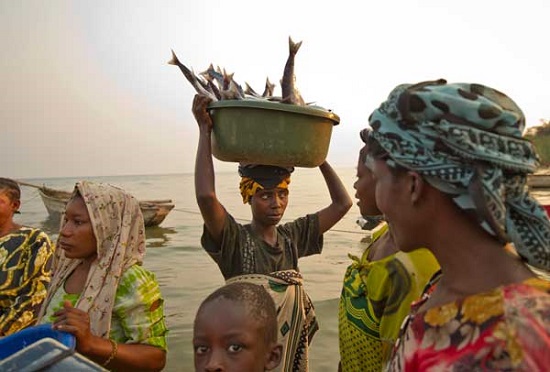
Protecting nature really is the bottom line for human prosperity. But how does conservation help the world better understand that? And then act on that knowledge?
The new Science for Nature and People (SNAP) initiative is designed to answer these questions -- quickly and effectively. A new collaboration between The Nature Conservancy (TNC), the Wildlife Conservation Society and the National Center for Ecological Analysis and Synthesis (NCEAS), SNAP will deliver rapid, implementable results. Our goal is to demonstrate how protecting nature can enhance human well-being.
I'm at the Clinton Global Initiative's 2013 Annual Meeting, where SNAP is being announced today -- a clear recognition of the growing importance world leaders and human development experts are now placing on conserving the natural systems that support all life.
It's exciting to see this growing awareness of the connections between healthy nature and healthy, prosperous communities. We in conservation have known for some time that our interventions really do benefit people and enhance economic development.
But to spread this understanding and help policymakers, corporate leaders, planners and others put it into action, we have to detail these connections with even more precision -- and that's where SNAP's scientific efforts will focus.
SNAP is going to be bold in the questions it addresses. Right off the bat, it's tackling two big issues: how investments in ecosystems can protect coastal populations from storms, and how large-scale infrastructure can be developed in the Western Amazon in ways compatible with sustaining the astonishing ecosystems there, particularly for fish and the tens of millions of people who depend on them.
You need think back no further than Hurricane Sandy's devastation a year ago to the coastal communities of New Jersey and New York to understand the importance of SNAP's work. While we believe investments in coastal ecosystems can go a long way in protecting people, just having that broad hypothesis is insufficient. Engineers and coastal planners need real data about just where and how green and hybrid green/grey infrastructure solutions will work cost-effectively -- and that's what SNAP will provide them.
SNAP should succeed for a couple of reasons. First, it draws on three great founding partners -- TNC, WCS and NCEAS -- that bring great science capability, great convening power, and on-the-ground capacity in 65 countries for testing and implementing the results.
That ability to convene experts and put results into action with an eye to refining the findings makes this a unique effort. This is one of those well-designed collaborations where the partnership can be much more than the sum of its parts. In addition, SNAP's working groups will contain key practitioners and stakeholders who are ready to implement its findings -- generating critical momentum for the knowledge we create.
Second, the world is looking for the answers SNAP will provide. The timing couldn't be better -- SNAP will take on questions that our city and community leaders are thinking about as we see greater impacts and losses from coastal storms and inland flooding, and that business leaders are thinking about their operations and supply chains are impacted. We can help bring real science to address real challenges the planet is facing right now.
And that's why I'm personally excited about SNAP. It gives us the chance to scale up conservation's relevance to issues everyone cares about. Just think: if we can show the world that our conservation interventions can really benefit people and really drive sustainable, economic development, that should allow us to take our work to a whole new level and achieve a whole new impact.
Image: Local village fisherman work to catch barely enough fish to make a living selling to the local market in the village of Katumbi on Lake Tanganyika in Tanzania. Image credit: Ami Vitale.
